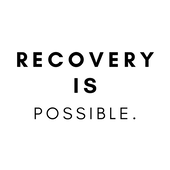|
Symptoms
Substance Use Disorders (SUD) involve a combination of the following symptoms. Severity is determined based on the number of symptoms an individual possesses.
Opioid Users Naloxone, and the brand-name version, Narcan, are both used to rapidly reverse the symptoms of a deadly opioid overdose. If you are an opioid user, especially if you use frequently or alone, please consider keeping Narcan on hand. With minimal training, family members or concerned bystanders can safely administer these lifesaving drugs. To learn more about where to find Naloxone, check out this link. Alcohol Addiction Alcohol addiction - also known as alcohol use disorder, alcoholism, and alcohol dependency - is unique among addictions and can be particularly dangerous, especially when withdrawing. According to NIH, alcoholism estimates 15.1 million adults suffer from alcohol use disorder but only 6.7% of these people seek professional support. Alcohol withdrawal can be severe and sometimes fatal so Wellness Retreat Recovery has created a resource page to educate readers on the timeline of alcohol withdrawal and the importance of detoxing. |
Fentanyl Overdose Crisis in the U.S.With the increase in drug overdoses across the U.S., fentanyl overdoses have become a public health crisis. Fentanyl is a synthetic opiate drug that’s highly addictive and deadly. According to NPR, drug overdoses from January to December 2021 caused 108,000 deaths. Out of these deaths, more than 71,000 involved a fentanyl overdose. Pacific Palms Recovery offers useful information regarding what fentanyl is, signs of abuse and overdose, and various treatments to help individuals recover from fentanyl abuse!
Courtesy of Encourage Kindness: https://0zimmermank.wixsite.com/encouragekindness/post/addiction
|
